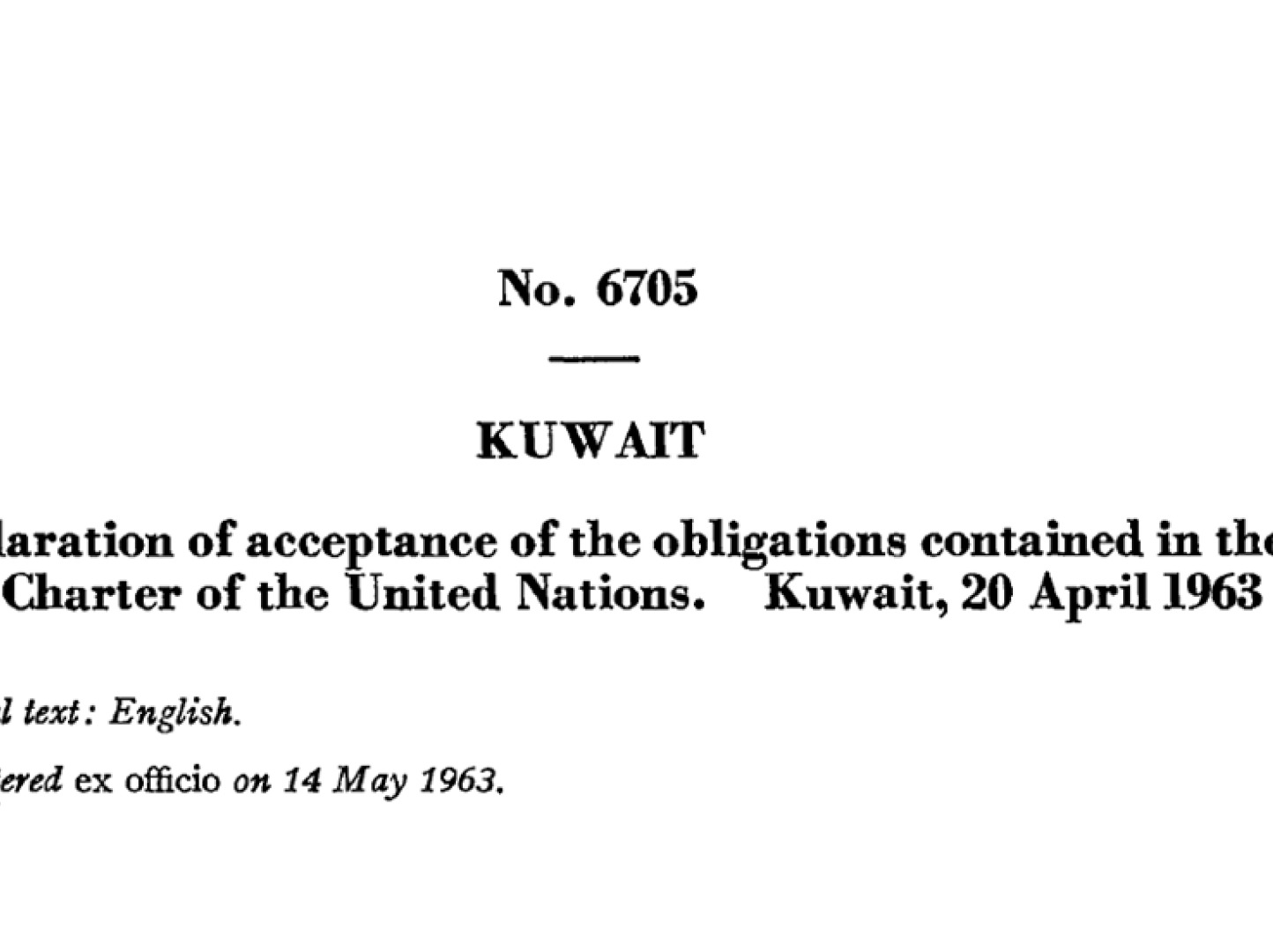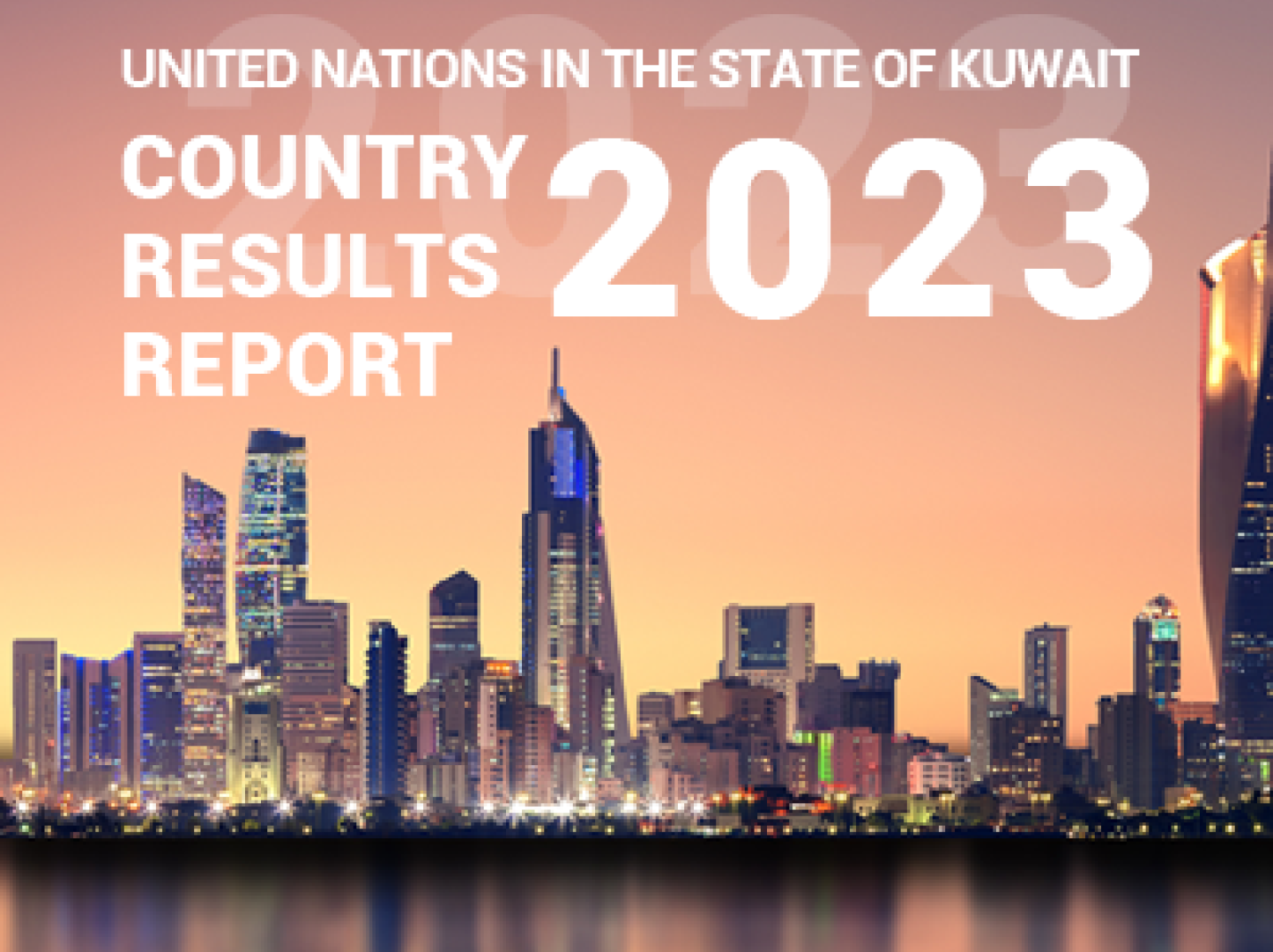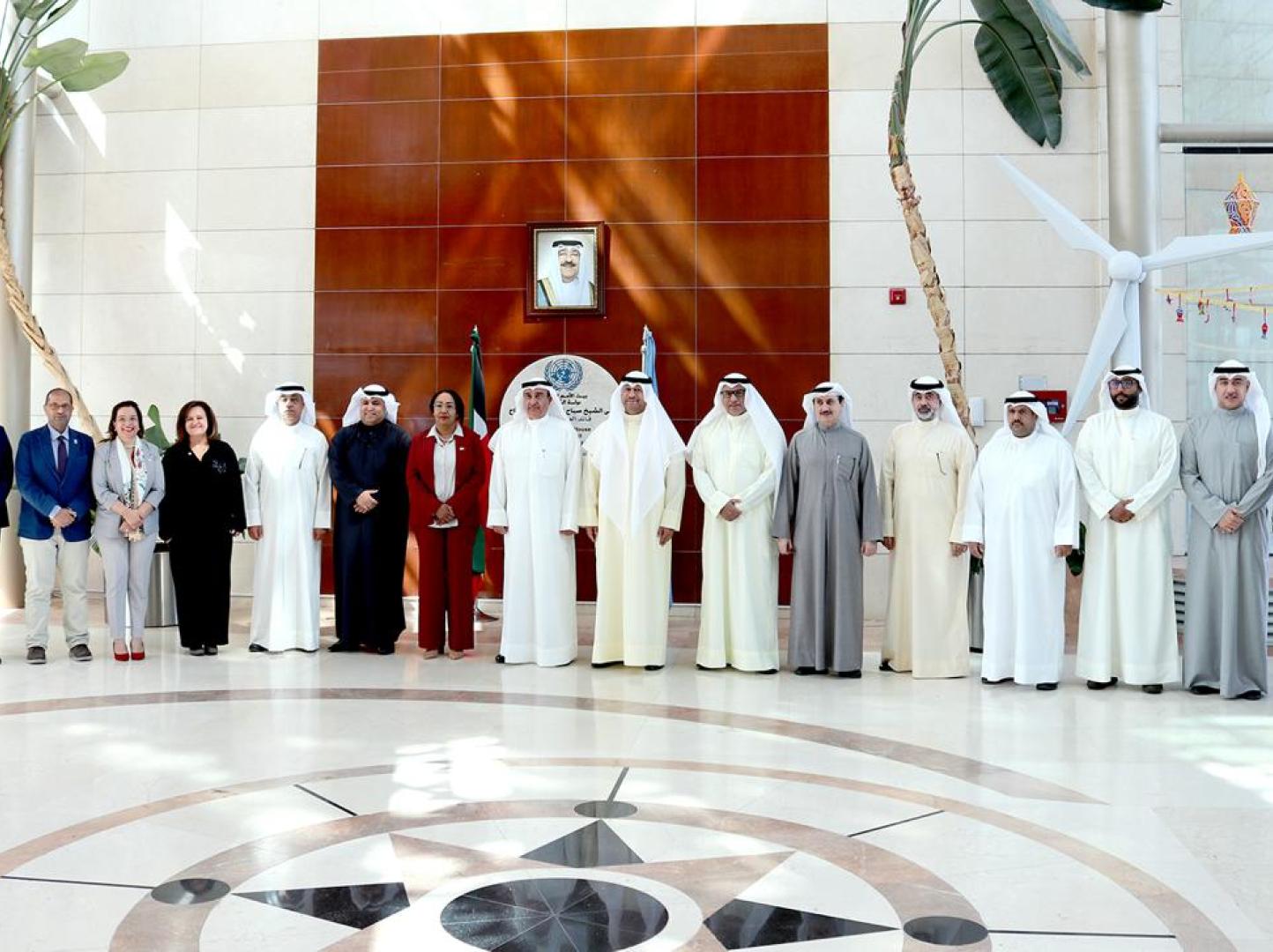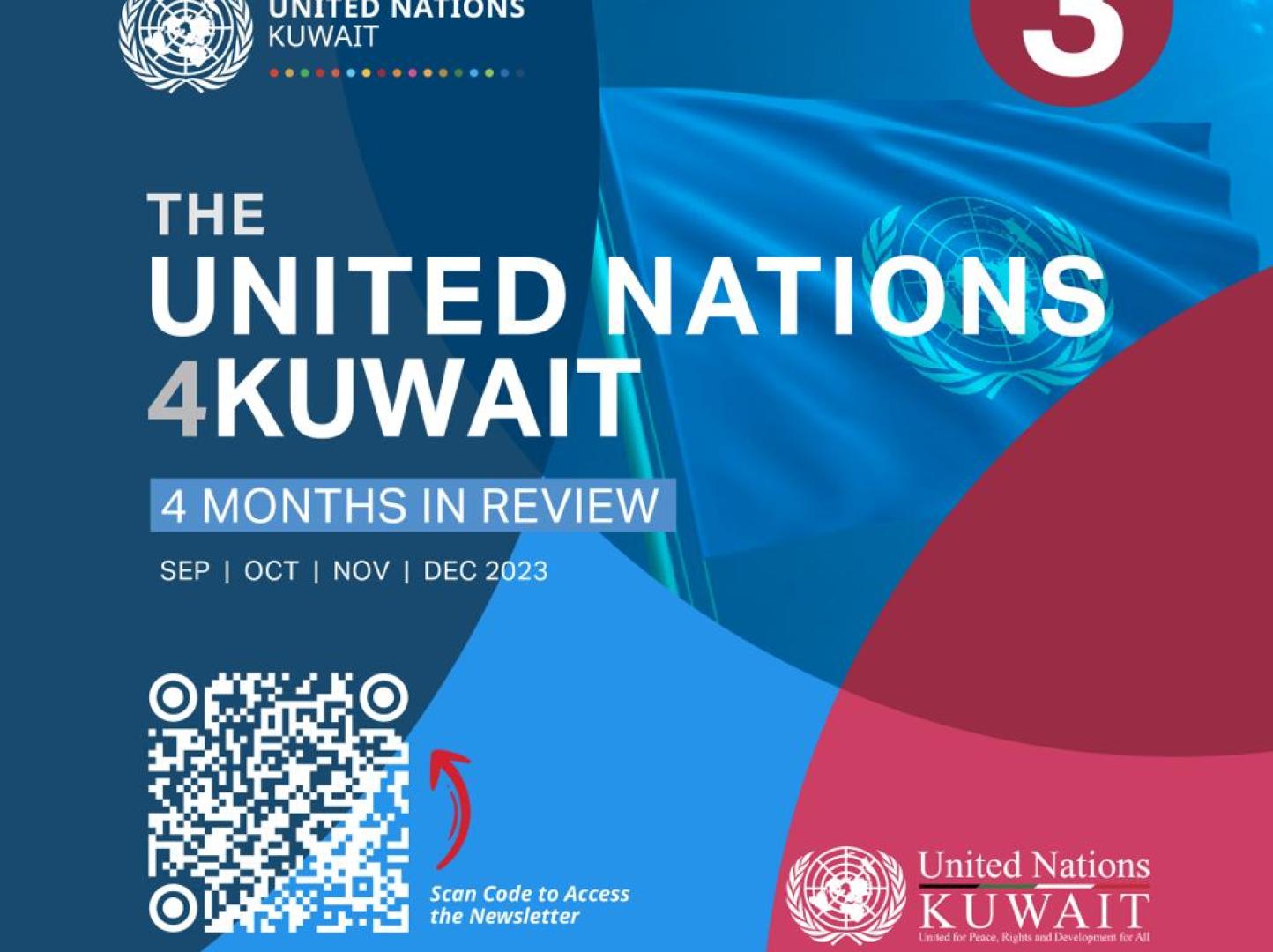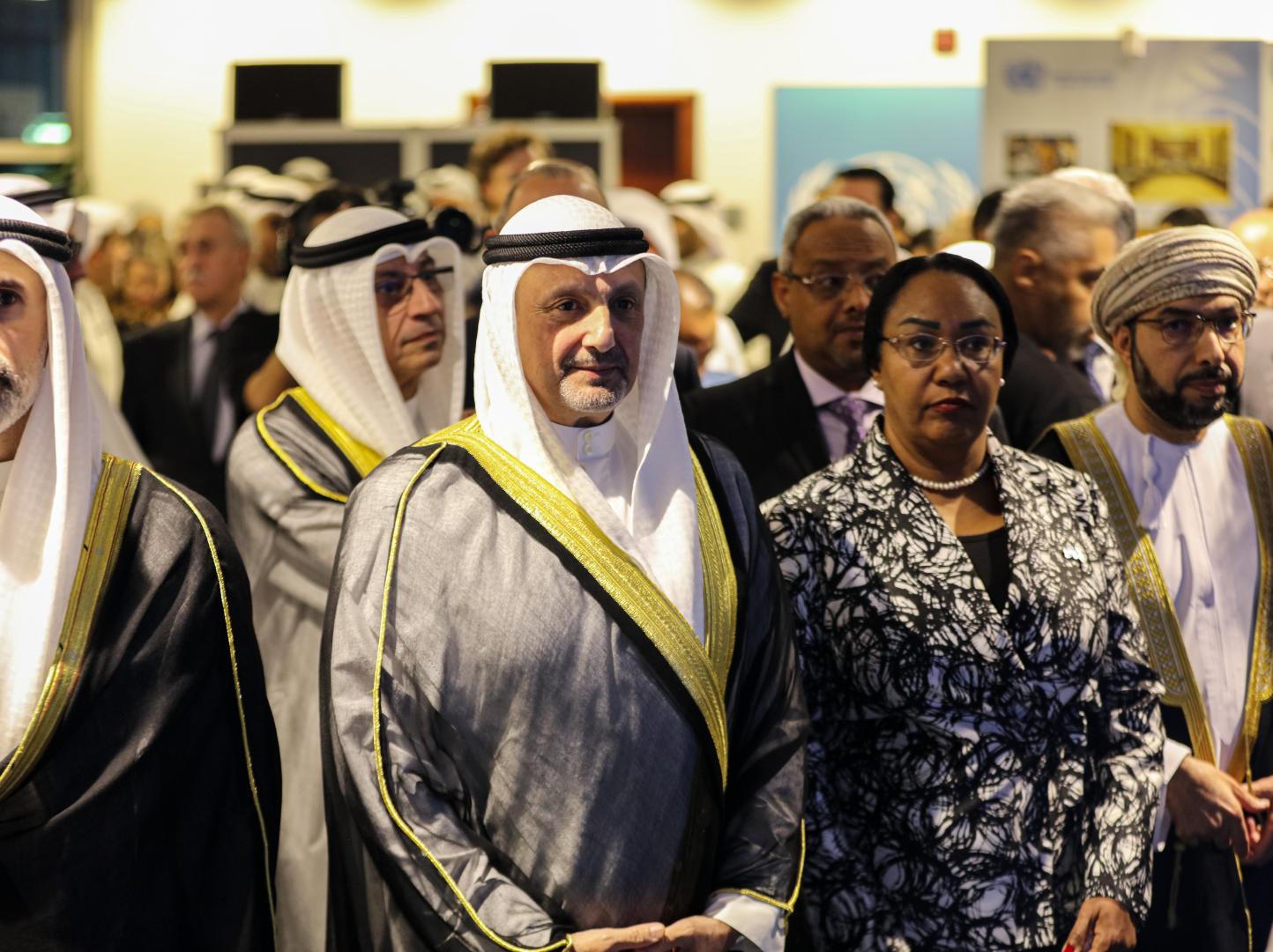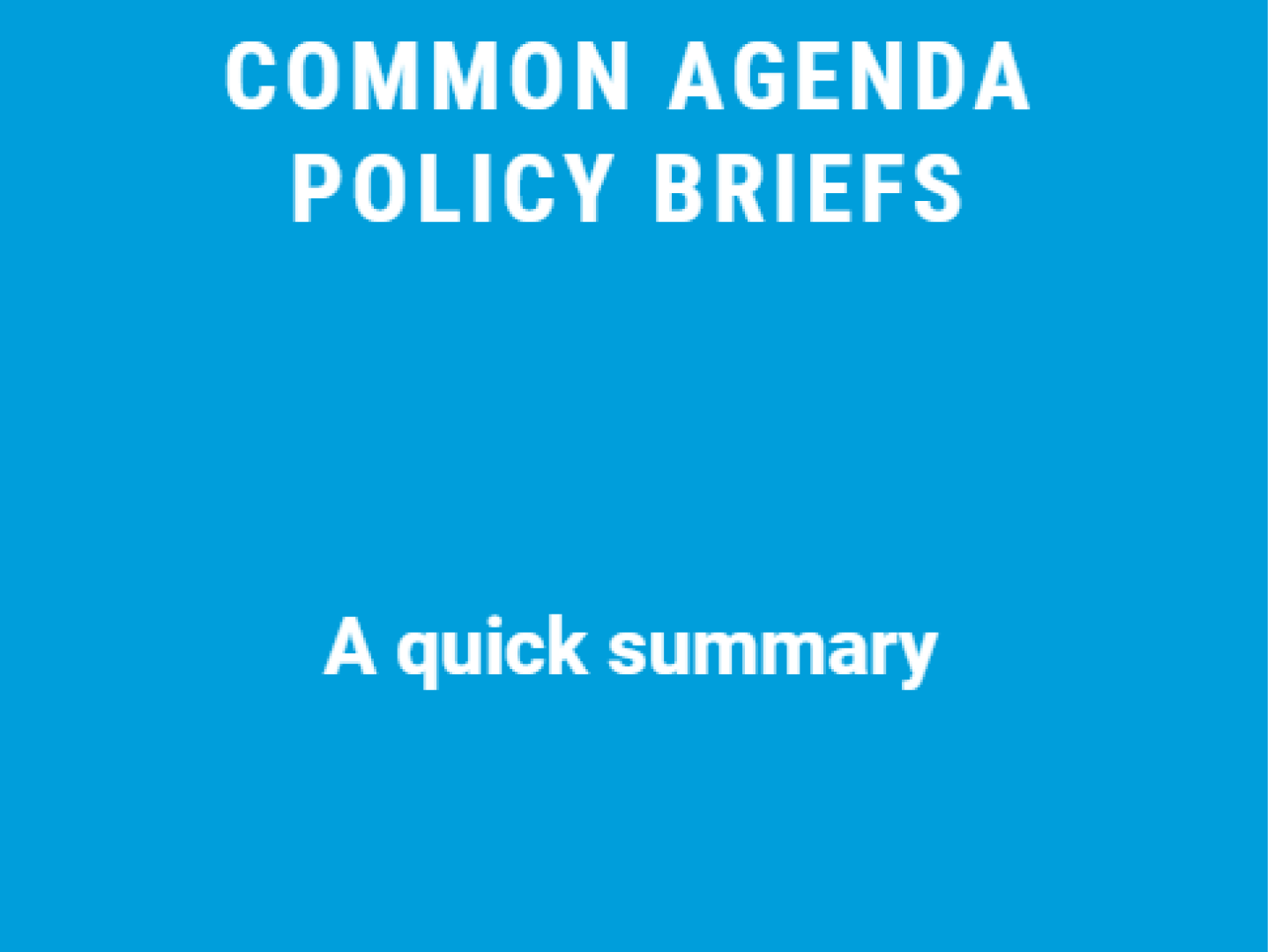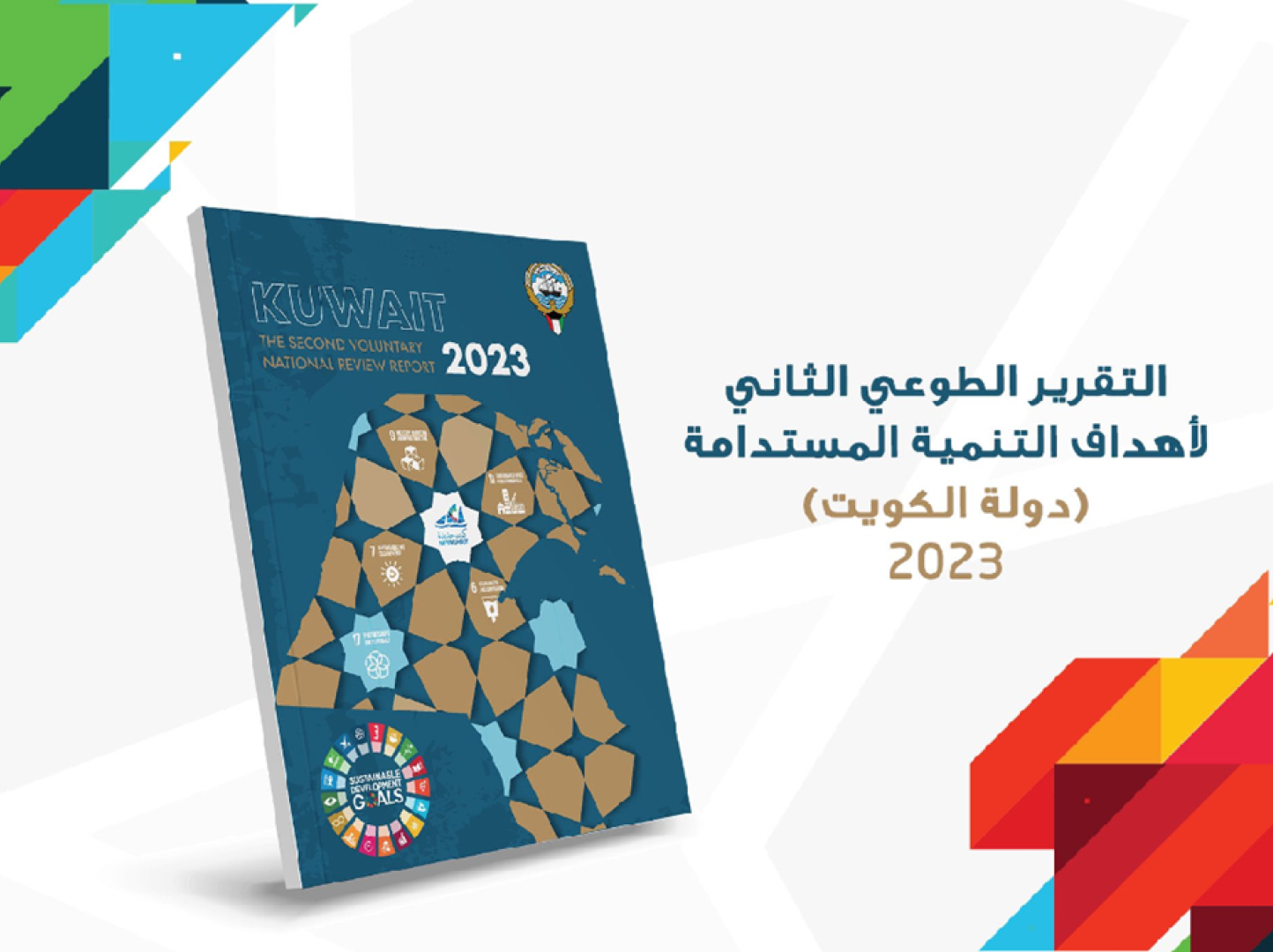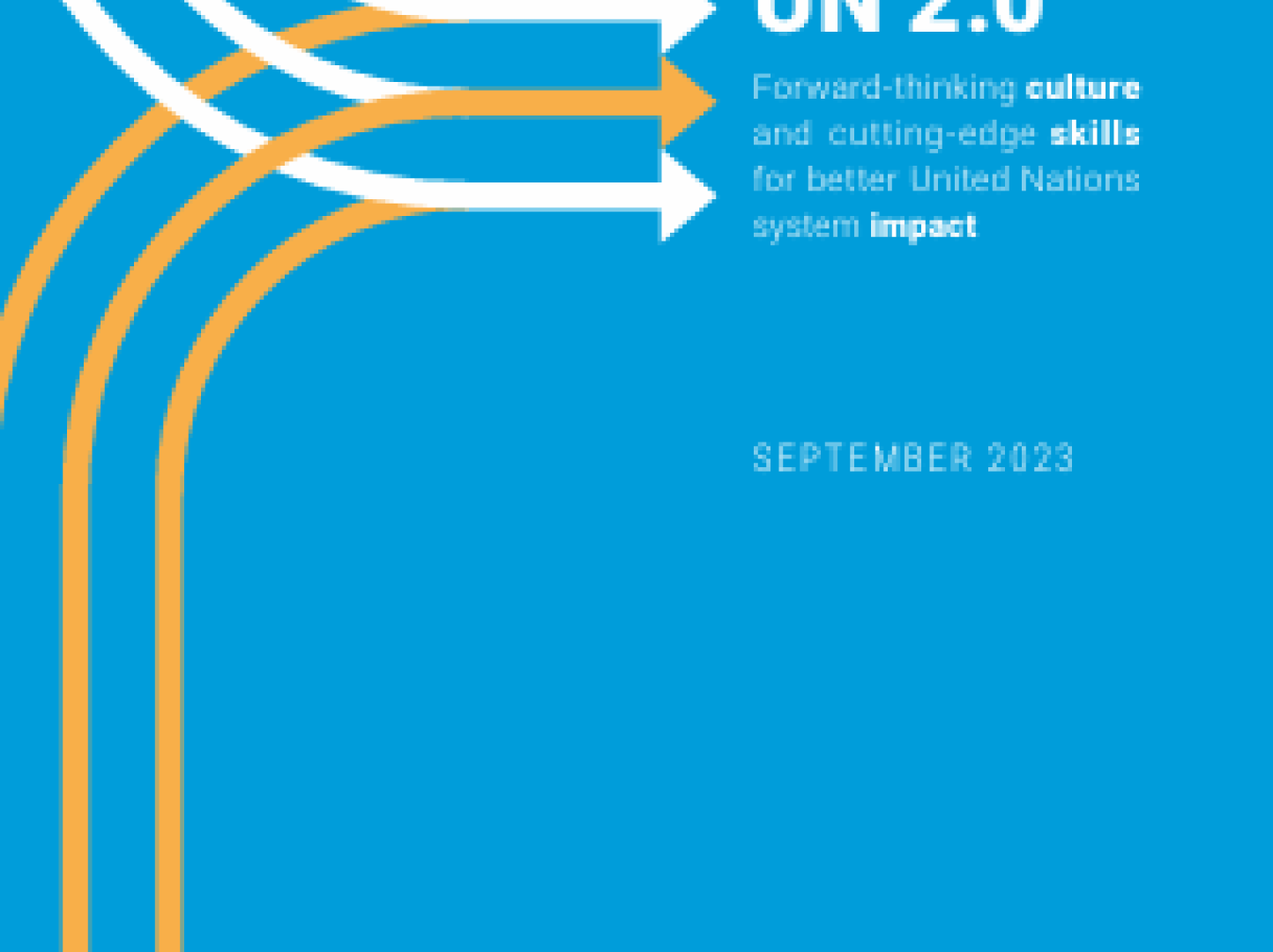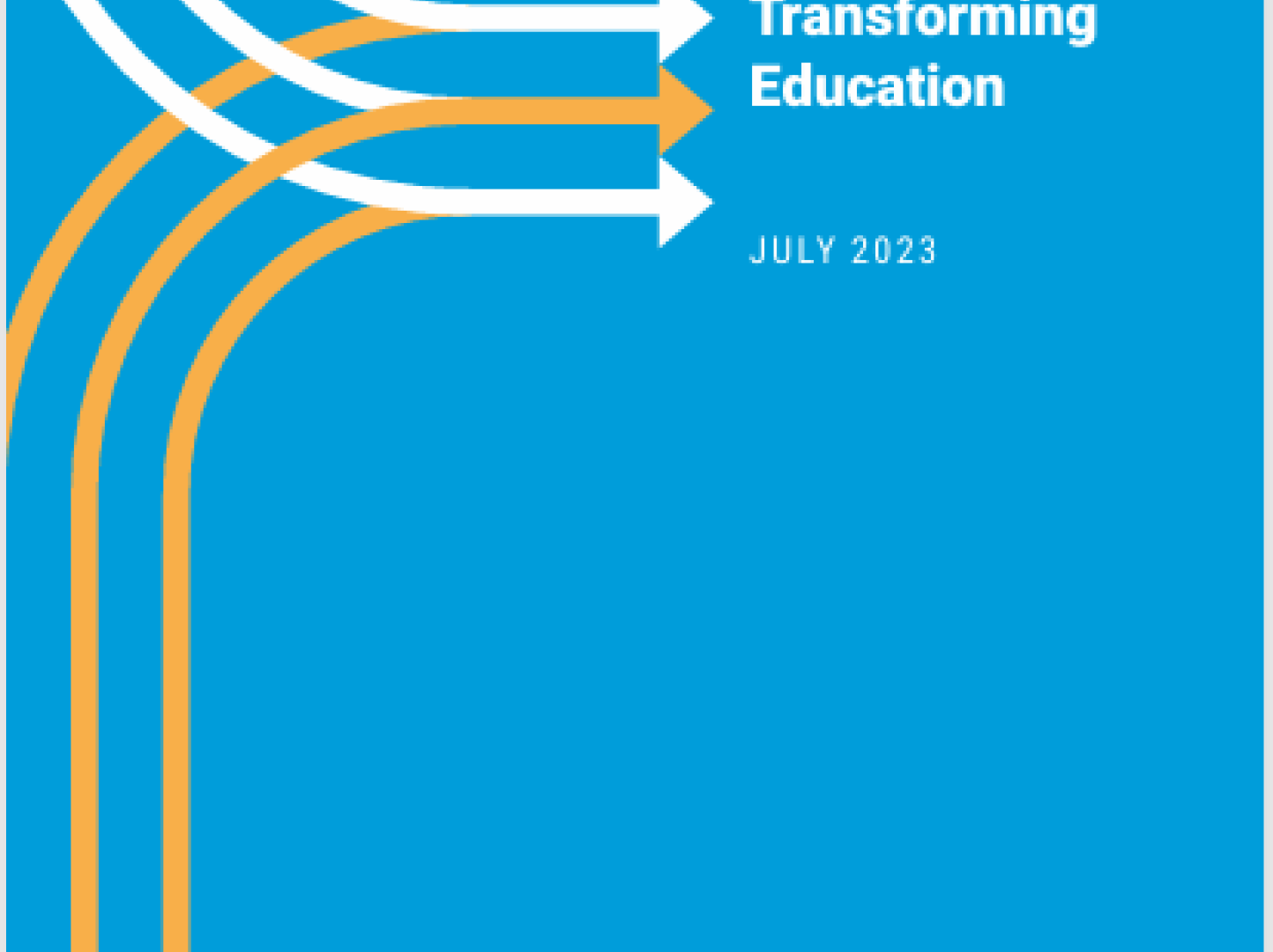Latest
Press Release
28 July 2025
Jordan launches a national strategy for health sector adaptation to climate change
Learn more
Press Release
28 July 2025
Childcare access improved for Female workers in a Jordanian industrial zone
Learn more
Speech
22 July 2025
The UN Secretary General Address on a "Moment of Opportunity: Supercharging the Clean Energy Age”
Learn more
Latest
The Sustainable Development Goals in Jordan
The Sustainable Development Goals are a global call to action to end poverty, protect the earth’s environment and climate, and ensure that people everywhere can enjoy peace and prosperity. These are the goals the UN is working on in Kuwait:
Story
30 June 2025
Community-led Climate Actions to Boost Resilience in Jordan
Across Jordan, a quiet yet powerful transformation is underway. Communities, young leaders and women are using the power of climate action to lead the way for a greener, more equitable and resilient Jordan. From schoolyards to rooftops, communities across the country are restoring ecosystems, creating jobs and cultivating hope for the future.The UN in Jordan team is working closely with the Government and international partners to support these locally led efforts, demonstrating what inclusive climate action looks like in practice: community-focused, driven by innovation, and sustained by cooperation and collaboration.As Jordan faces an increasing number of environmental challenges, including rising temperatures, water scarcity, land degradation and biodiversity loss, these initiatives chart a path toward a greener transformation and show that climate resilience is not a distant goal but a collective journey, powered by shared purpose. Under the leadership of the UN Resident Coordinator and in line with its 2023-2027 strategic priorities, the UN in Jordan team mobilises technical expertise to support national initiatives to tackle these issues, promoting climate adaptation and building resilience at several levels. Beekeeping for climate resilience and livelihoodIn the forested hills of Jerash and Ajloun Governorates, wildfires and droughts increasingly undermine biodiversity and agriculture. One local resident, Afaf Nizami, leverages beekeeping to reverse the trend while providing opportunities for members of her community, particularly women, to boost their livelihoods. As the Chairwoman of the Al-Nashmiyya Charitable Society for Women and Child Development, Afaf has long worked to support vulnerable women and children in her community. But with the increasing frequency of wildfires, unpredictable rainfall, and extended dry spells, Afaf saw the need for a new kind of empowerment, one rooted in resilience, sustainability and nature-based solutions.Her community-based organization was selected as one of six beneficiaries of a joint initiative led by the Food and Agriculture Organization (FAO) and the Government of Japan. The initiative integrates disaster risk reduction with sustainable livelihood development in Jerash and Ajloun.Through this programme, Afaf and her colleagues received training on fire prevention, flood response, drought mitigation and beekeeping. In addition to the knowledge that Afaf acquired, she also received 90 inhabited beehives, six modern honey extractor machines, stainless steel tanks, harvesting gear and marketing tools. This equipment was everything she needed to turn the training she received into an income stream to boost her livelihood.“This isn’t just about producing honey. This is about securing a future for women-led associations, generating income and building food security in our communities. With the right tools, we are now able to launch real, sustainable products,” said Afaf.For her, beekeeping has become a symbol of what is possible when the right strategic and infrastructure support complements technical training and local know-how. Her association is now developing a community apiary, where women can learn, work and earn an income together, reclaiming economic agency while contributing to environmental restoration.The impact goes beyond Afaf’s association. Expanding on this initiative and in partnership with national authorities, two governorate-level Disaster Risk Reduction (DRR) committees were established in Jerash and Ajloun. These committees are helping integrate grassroots resilience into broader regional planning. Further, these activities revitalised efforts to strengthen ecosystem rehabilitation and sustainable land use while placing communities at the centre of climate adaptation efforts.Bringing climate action to the classroomIn the industrial city of Zarqa, two 23-year-olds—Mahdi and Ruba—are taking climate action in their community where it matters most: in classrooms with the next generation.As Youth Climate Leaders under the UN Children’s Fund (UNICEF)’s Sawn programme, the duo co-created Climate Friends, a grassroots environmental initiative aimed at educating schoolchildren about climate change through interactive games, storytelling and creative learning tools. “We targeted this age group because children are the future,” explains Ruba. “Whatever they learn at an early age stays with them, and we wanted those lessons to be about care for the Earth.”This engagement brought sustainability into classrooms in a playful and engaging way. Children learned about recycling by building toys from plastic cups. They explored concepts of biodiversity through planting seeds and water conservation by simulating rainfall in miniature ecosystems. Mahdi and Ruba aimed to send a simple yet powerful message that resonates with young students: “If we take care of the environment, the environment will take care of us.”For Mahdi, the work was deeply personal. “In Zarqa, the air quality is only getting worse. You see trash everywhere. But being part of this initiative gave me something more than frustration—it gave me hope,” he says. “Hope that youth, when united, can raise awareness, take action, and actually change things.” The Sawn programme, a partnership between the Jordanian Ministry of Youth, the Ministry of Environment and UNICEF, and which was implemented by the non-profit Generations for Peace, has engaged with youth climate leaders like Mahdi and Ruba. This initiative aims to cultivate their leadership with the right training and provide them with opportunities to participate in national and global fora on climate change. With generous support from the Kingdom of the Netherlands through the PROSPECTS partnership, these young leaders are rolling out climate advocacy initiatives across Jordan’s 12 governorates, creating a ripple effect of awareness, responsibility and change.“The children understood more than we expected,” Ruba reflects. “ They reminded us that a cleaner Jordan is possible if we start early, and we start together.”Smart innovation for water securityIn Irbid and Mafraq, where water is both life and limitation, young Jordanian innovators forge new paths toward climate resilience, bringing prototypes. Under the “Scaling Up Water Innovation for Climate Security” initiative, supported by the UN Development Programme (UNDP) and funded by the Swedish International Development Agency (Sida) through the SDG-Climate Facility, a group of visionary young entrepreneurs is proving that water scarcity can be met with ingenuity, not despair.Seven youth-led Small and Medium Enterprises (SMEs) are at the heart of this transformation. They are deploying a mix of AI-powered irrigation systems, Internet of Things (IoT) devices, hydroponic solutions, vertical gardens and green wall technologies—each tailored to Jordan’s harsh climate and fragile ecosystems. One youth founder proudly shared, “Our startup reduced water use by 20 per cent while increasing crop yield. This isn’t just about agriculture. It’s about innovation, survival and responsibility.”But the project’s reach extends far beyond these seven companies. More than 25 startups in the sustainability space were trained in financial modelling, value proposition design, and customer development. Most beneficiaries, 63 per cent, were young people under 30, making this initiative a powerful model of youth-centred, impact-driven entrepreneurship. From Irbid’s university halls to Mafraq’s farmlands, these innovations are already bearing fruit.For example, two start-ups, Smart Green and SmartWay to Innovation, are revolutionising household farming by using data to optimise water use. Other startups, Senara, Green On, and iPlant, introduced urban farming models that are redefining food production in water-scarce neighborhoods. Al-Yaqout for Agricultural Investments and KeyLife Electronics developed soil enhancement and water retention products, helping farmers grow more with less resources. Guided by the Youth 2030 strategy, the initiative also ensured long-term sustainability by training beneficiaries in system maintenance and transferring technical knowledge and ownership to the communities.Jordan’s community-led leadership is demonstrating the critical role of local action in building climate resilience. With the support of the UN in Jordan, these innovative approaches make the case that putting the community, including women and young people, in the driver’s seat of sustainable development paves the way for a prosperous, sustainable future.
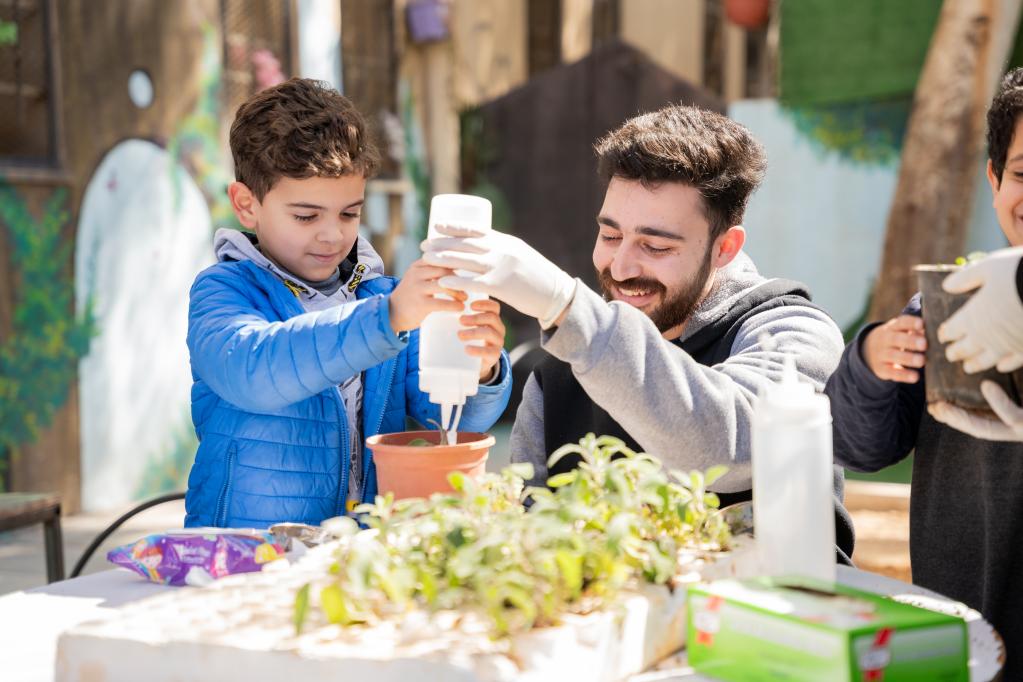
Story
10 July 2025
From dropping out to dreaming big: Ghazala’s second chance at Makani
Every year, Makani centres provide vulnerable children, including over 2,500 children from the Dom community, with safe and inclusive spaces where they learn, play and build friendships.At a UNICEF-supported Makani Centre, 13-year-old Ghazala radiates the bright and joyful energy of someone who has found a space where she belongs. “Makani is just so beautiful,” she says with a wide smile. “The facilitators are so kind to me and I learn so much here.” Ghazala lives with her parents and six siblings and is from a marginalized Jordanian minority community known as the Dom, which historically has been a nomadic group. As the family speaks Turkman at home, Arabic was difficult for her to learn - until she found the support she needed at the Makani centre. “We don’t speak Arabic at home, but here, I learned it along with mathematics and many other activities that I did,” Ghazala explains. Because of seasonal migration of the Dom community, Ghazala’s education was disrupted, and she was out of school for a few years. “I dropped out of school when I was only in Grade 2,” she recalls. “But I’ve been attending the Makani centre for many years now - I can’t even remember how young I was when I started.” A Place to Learn and BelongMakani, which means “My Space” in Arabic – is exactly that for Ghazal: a place to learn, feel safe and express herself freely. UNICEF and its partners established Makani centres across Jordan to provide vulnerable children from all backgrounds access to learning, protection, and psychosocial support in safe and inclusive environments. “Makani is not just a place for learning,” Ghazala says. “I have so much fun here. My favourite activity is painting.” And when Ghazal talks about painting, her face lights up. “Painting makes me feel so good,” she says. “Creating things out of my imagination, expressing my feelings using colours – this is the nicest thing. When I see my finished painting, I feel like all my emotions are there.” Sometimes Ghazala finds it hard to express her feelings with words - but never with colours.“I like to paint flowers, girls in dresses, and smiley faces,” she says. “I colour them like a designer! Smiley faces give me positive energy, and they make other people, who see my painting, smile too.” Creativity, Confidence, and CommunityAt Makani, Ghazala has found what every child deserves: a safe space, community of friends and trusted adults, all who help her thrive. “I have so many friends here, and it feels great,” she says. “We talk, share our thoughts and feelings, and play together. My life feels so colourful because of the things I have – my loving family, my beautiful friends, and this amazing centre where I can be myself.” The facilitators at the Makani centre have left a lasting impact on her life. “I feel safe here,” Ghazala says. “I’ve never been shouted at. The facilitators are kind and understanding. They treat me like family.” Through her time at the Makani centre, Ghazala has also gained important life skills and the confidence in how to navigate challenges that may arise. “The facilitators taught me how to stand up for myself and ask for help when I need it,” she says. “They taught me to always speak to an adult I trust, like my mom or someone at Makani centre.” A Future Full of DreamsGhazala is full of big dreams and she’s not afraid to share them. “My mom always wanted to finish her education before getting married, but she didn’t get the chance. I want to change that,” she says confidently. The Makani centre has given Ghazala the support and encouragement she needs to chase that goal. “I hope one day I can go back to school and continue learning,” she says. “Makani is helping me get there.” UNICEF is grateful for the European Union for helping us reach the most vulnerable children and adolescents with integrated services through the Makani programme in Jordan, including over 2,500 children from the Dom community.This story was originally published by UNICEF and written by AbdelMajid El-Noaimi. To learn more about UNICEF’s work in Jordan, visit the link below.https://www.unicef.org/jordan/
1 of 5
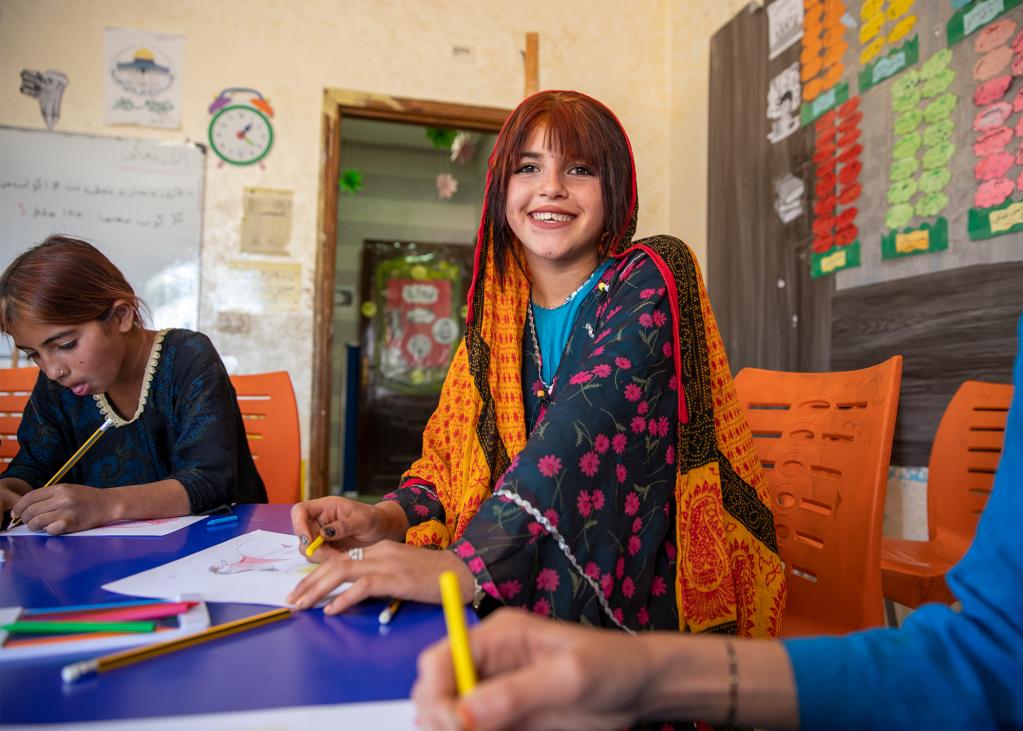
Story
18 June 2025
Holding On — Stories of Survival and Dignity in Zaatari Camp
The familiar bustle of the camp’s streets, once lively with the chatter of children and the aroma of shared meals, had given way to a quieter rhythm. For many here, the idea of returning home no longer belonged to the realm of dreams. It was being weighed, not with hope alone, but with careful reflection. Abu Hamzeh Holds on to Dignity and Hope Amid Rising HardshipThe supermarket, one of the two contracted by WFP, was quieter than usual. As shoppers moved between shelves, eyes careful and carts modest, a man in his late forties caught the eye. He moved with quiet confidence, selecting items with purpose: rice, lentils, cooking oil, a few other basics. That man was Abu Hamzeh. A father of six, five daughters and a young son, two of whom were born here in the camp. His smile stayed as he welcomed the idea of a chat, inviting us over with the warmth only found in places where hospitality is offered not from abundance, but from generosity of spirit.“We’ve lived here for nearly thirteen years,” he said. “It’s not easy, but it’s home because we’ve made it one. And because we have no other.”Like many others in the camp, Abu Hamzeh’s family depends on WFP monthly assistance to meet their food needs. But over the past two years, reduced cash assistance has meant reduced food portions.“The assistance we get is the reason my children don’t go to sleep hungry,” he said. “Even if it’s less than before, it’s what keeps us going. Without it, I don’t know how we would manage. It gives us a little peace… and dignity.” “We used to get more,” he said, pausing as he glanced at his modest cart. “Now, it barely lasts the month. Still, without it, I don’t know what we’d do.”There’s a deep, quiet pride in Abu Hamzeh, a kind of strength that refuses to wear itself on the outside. But even that strength flinches when talk turns to Syria.“My house in Daraa is in rubble now,” he said, voice steady but eyes clouded. “Even if I wanted to return, there’s no roof for my children. No work. Just debts from trying to live here.”His words held no bitterness. Only the resignation of someone who has done the math and found that the numbers don’t add up. Not yet. Then, as he steadied his cart to leave, he added, almost to himself: “Things are still uncertain for my family. At least here, with the little we have, we can still carry on.”Alia and Naseem Find Strength in Family and the Will to RebuildJust a few caravans down the road, a different kind of scene unfolded. Quieter still, yet just as telling. Alia stood outside her shelter, hands deep in a basin of green fava beans. The pods were dark, a little too soft, with edges that had started to blacken — likely bought at a discount from the informal market at Zaatari camp. She sorted through them methodically, saving what she could. Her husband, Naseem, stood near her, his gaze steady, resting on the empty mattresses where their children usually sat after school.The triplets are thirteen now, born just two months before the family fled Syria. Today, they were at school — something Alia and Naseem take great pride in. Education is their anchor.“We’ve sacrificed a lot to keep them going to class,” Alia said, brushing her hands on her dress. “If there’s one thing we can give them, it’s a chance to learn. Something we hope no war can take away.”Back in Syria, Alia worked at the national electricity company. Here in the camp, she found short-term work under a rotating program with an NGO, but that ended two months ago when the project was cut due to funding shortfalls. Naseem hasn’t been able to work for years. A war injury left him with lasting damage in both legs, and a heart condition limits him further. “It’s been harder since I stopped working,” Alia said. “We try to stretch what we have, but it’s never enough. Food assistance has gone down, and daily expenses keep going up. We’re doing our best, but some days, it just feels like too much.”The family now finds itself walking a tightrope, surviving day by day, while quietly weighing the possibility of returning to Syria. Not because they believe things are better, but because they’re running out of options.“We’ve thought about going back,” Naseem admitted. “At least there, we might be able to live with relatives. Start again, even if it means starting from nothing.”But debts, some JOD700 owed to local shops, keep them rooted for now.“I can’t leave without paying back what we owe,” Naseem said, voice low but firm. “These people trusted us. I want to be able to look them in the eye and say we didn’t run. That we left with clean hands.”“I remember our first nights here, sleeping in a tent with three newborns,” he added. “If we have to do it again, we will. Whether it’s here or back home, life keeps testing us. But with patience and belief, we’ll rebuild. Even if it’s one brick at a time.”Donor support has enabled WFP to assist the most vulnerable Syrian refugees in Jordan through some of the most challenging times. Contributions from partners such as the King Salman Humanitarian Aid and Relief Centre (KSrelief) had played a vital role in past years, helping families like Abu Hamzeh’s and Alia’s access the food they rely on. As the context continues to evolve, and with resources stretched thin, continued support is urgently needed to ensure vulnerable families are not left behind.
1 of 5
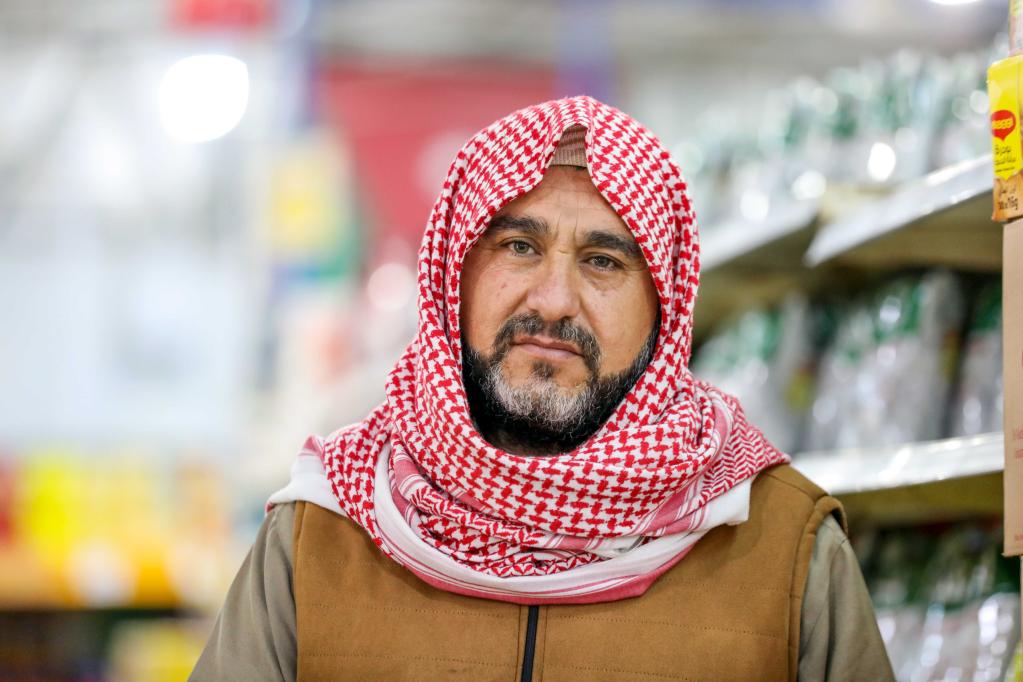
Story
06 May 2025
Leaving No One Behind: EMIS as a Path to Inclusive Education in Jordan
In today’s digital world, data is crucial for decision-making and policy development. The integration of refugee data into Jordan’s Education Management Information System (EMIS) is helping improve equal access to quality education for all students. This initiative, supported by UNESCO and funded by the European Union through the “Technical Assistance to Support Jordan’s Ministry of Education’s EMIS Platform for Enhanced Evidence-Based Decision Making” project, ensures that refugees are accessing and learning in the national education system. Jordan currently hosts over 620,000 refugees registered with UNHCR[1]. Previously, registering refugee children in Jordanian schools required multiple documents, including a UNHCR Asylum Seeker Certificate, a UNHCR refugee certificate, a passport, a birth certificate, and either a Ministry of Interior (MoI) card for Syrians or another form of identification, such as an ID card or the number provided by border authorities on the passport. Parents often had to visit schools and administrative offices repeatedly, delaying enrollment. Additionally, school administrators manually verified whether a non-Jordanian student was a refugee by checking their UNHCR Asylum Seeker Certificate each year, consuming valuable time and resources. Amira, a Somali refugee who arrived in Jordan in 2013, and Bar’a, an Iraqi refugee living in Jordan since 2012, both faced challenges in enrolling their children in school. Amira had to submit various documents, including Asylum Seeker Certificate, a passport, and a personal identification number—such as the number issued by border authorities on the passport— every year, making the process stressful and time-consuming, Now, with the alignment between EMIS and UNHCR database, all she needs is her UNHCR asylum seeker certificate for school enrollment. Similarly, Bara’a previously had to renew her son’s asylum seeker certificate, annually, visiting both UNHCR and the school for verification. With EMIS’s automated validation process, her son’s status is verified electronically in seconds, eliminating the risk of lost documents and saving time.The updates to Jordan’s EMIS platform simplify the verification of the protection status of the refugee automating the process. Instead of requiring parents to submit multiple documents, EMIS instantly validates the necessary information, reducing administrative burdens and allowing for faster student registration. Ensuring a valid Asylum Seeker Certificate number. Remains essential, as it serves as proof of refugee status and enables students to be exempted from school fees.This automation ensures that refugee students can be enrolled in school promptly, avoiding delays and disruptions in their education. It also frees up teachers to focus on their primary task—teaching.Beyond efficiency, EMIS enhances coordination between the Ministry of Education, UNHCR, and relevant partners, ensuring educational resources target the most vulnerable students It provides policymakers with reliable data to better understand refugee students’ needs, track their educational progress, and address learning gaps, ensuring they receive the necessary support to succeed academically. By minimizing data entry errors and improving inter-agency coordination, this initiative reinforces Jordan’s leadership and commitment to inclusive education. Few refugee-hosting countries have effectively disaggregated basic education data by protection status in their national EMIS. Jordan is leading the way, offering valuable insights for other countries seeking to replicate these efforts. Through the integration of refugee data into EMIS, Jordan is making important strides toward achieving Sustainable Development Goal (SDG) 4: ensuring inclusive and equitable quality education for all. This collaboration and commitment to innovation demonstrate how data-driven solutions can create a future where every child has the opportunity to learn and thrive—without delay. -END- “The Technical assistance to support Jordan’s Ministry of Education’s EMIS platform for enhanced evidence-based decision making” was jointly designed with the MoE, UNESCO and the European Union in 2022 to support the MoE’s strengthening of its enabiling environment for OpenEMIS, through the operationalization of its EMIS Policy, while also supporting the MoE to migrate their EMIS towards a sustainable and robust hosting solution. In addition, enhancements to Jordan’s EMIS were done to improve data quality, accuracy and utilization, including enhanced data on refugees.
1 of 5
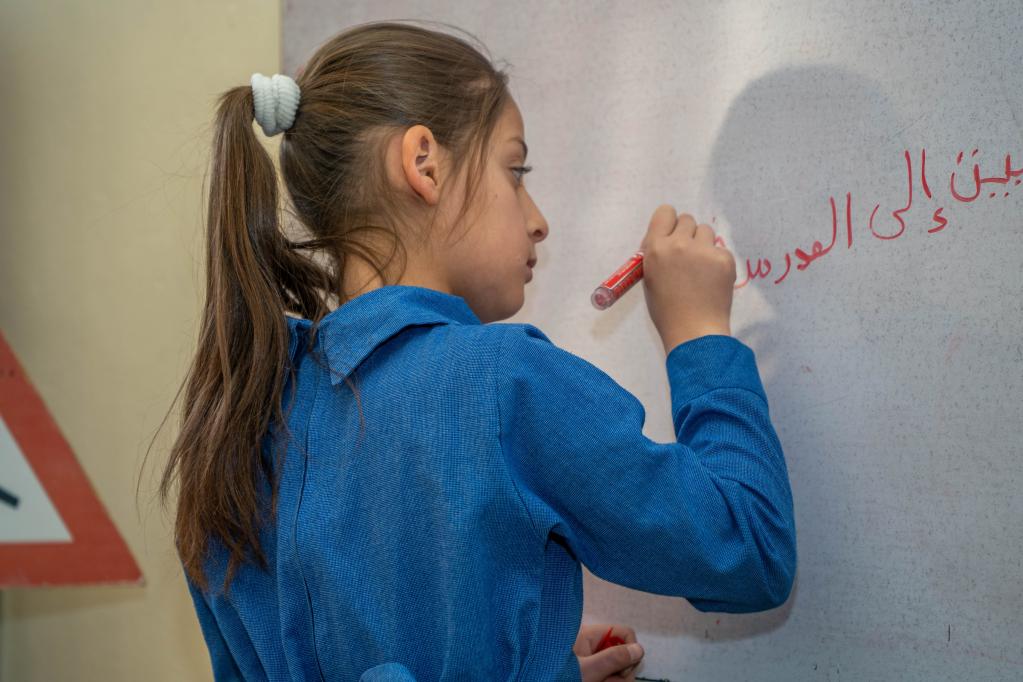
Story
03 February 2025
The Lifeline of Water: Asmahan's story in Za’atari Camp
In Za’atari camp, Asmahan, an Arabic teacher at a Makani centre, lives with her husband and six children. Their journey to Jordan began in 2013 after fleeing the war in Syria.The early days in the camp were tough. Asmahan recalls the daily struggle for clean water. "We had to carry water home in buckets and queue every day at public taps," she says. The lack of privacy at public washrooms made life even harder.Things began to change with UNICEF's intervention. The installation of water and wastewater networks transformed their living conditions. "These networks have allowed us to have water in our own houses, toilets, and kitchens, giving us a sense of normality," Asmahan explains. Living in Za’atari has taught Asmahan and her family the true value of clean water. "Unlike Syria, water here is very limited, and if we are not careful, we will run out of water before the next round of water distribution," she says. Most of their water is used for hygiene, a crucial aspect of camp life.Asmahan has instilled the importance of water conservation and hygiene in her children. "Thankfully, all of them have learned well, and we never run out of water as a result," she proudly shares.Her daughter Shahd, though shy, demonstrates how her teachers and mother taught her to wash her hands properly, a small but significant step in maintaining health in the camp.Asmahan's story is a powerful testament to the resilience and determination of families in Za’atari. It highlights how access to clean water, made possible through UNICEF’s support, is critical in improving their lives.Za’atari camp, home to over 78,500 residents, benefits from UNICEF's water, sanitation, and hygiene services. Established in 2019, these household-level systems ensure stable access to clean water, safe sanitation, and reduced operational costs, enhancing residents' quality of life.By AbdelMajid Al-Noaimi, UNICEF JordanFor more information about UNICEF's work in Jordan, please visit their official website:UNICEF Jordan
1 of 5
Story
12 December 2024
Building a stable future – Eyad Al Merjawi’s journey to decent work and social protection in Jordan
ZARQA (ILO News) — Eyad Al Merjawi, a 41-year-old refugee from Syria, has called Jordan home since 2013. Settling in the city of Zarqa, 30 km northeast of Amman, Eyad struggled to find work without the necessary permits—an obstacle to many refugees. Eyad’s journey took a positive turn, with support from Jordan’s Social Security Corporation (SSC), jointly with the International Labour Organization (ILO) and UNHCR, the UN Refugee Agency, under the PROSPECTS partnership funded by the Government of the Netherlands.The Start of the Journey Eyad's journey to stable employment in Jordan began with one essential step: securing his documentation through UNHCR’s registration system, a key tool in providing refugees with access to rights and services. In Jordan, without proper registration through UNHCR, refugees cannot access basic services such as public healthcare, education, or even employment opportunities
For Eyad, obtaining his work permit was a turning point. "It was not easy at first; I faced many obstacles just to get the permits needed for employment," he recalls. Eyad first obtained an asylum seeker certificate, which enabled him to secure his work permit and to legally work as a butcher in a shop in Zarqa. Support that makes a difference While having a job is important for ensuring financial stability for refugees, obtaining social security coverage is equally crucial to protect them from potential lifecycle risks. To help refugees better understand the social security system, SSC and UNHCR conducted a series of awareness raising activities in refugee camps and host communities. Eyad learned about the Estidama++ programme which supports vulnerable workers in enrolling in social security schemes, providing them with essential protection in navigating the uncertainties of life. Estidama++ is a social protection initiative in Jordan aimed at helping vulnerable workers, including refugees, access social security. Supported by Jordan's Social Security Corporation (SSC) and with technical support from the ILO, the programme provides subsidies to cover social security contributions, making benefits such as injury insurance, maternity leave, and pensions more accessible to informal workers in sectors like agriculture and small businesses. This support helps lower barriers to participation, creating a more inclusive and resilient workforce across Jordan. Through UNHCR's outreach, Eyad learned how Estidama++ could provide vital protections, such as coverage for work-related injuries. This knowledge empowered him to enrol in the programme, reinforcing the critical role that accessible information plays in helping refugees secure a safer and more stable future. Eyad remains hopeful for the future and is optimistic about the programme’s potential extension. “I hope it continues, not just for me but for others who need it,” he says. For Eyad, Estidama++ is more than a programme—it’s a path to self-reliance, giving refugees like him a chance to rebuild their lives with dignity and hope by securing formal and stable employment. A positive impact on refugees After enrolling in the Estidama++ programme in December 2023, Eyad has received a 100 JOD (approximately 140 USD) income support every three months. In addition, his employer, the shop owner, receives 30 JOD per month to help cover a significant portion of the shop’s social security contribution on Eyad’s behalf. This financial support has provided Eyad’s family of five with a much-needed safety while made the shop owner more inclined to retain Eyad as an employee, knowing that part of the social security cost is covered. Hope for the Future "Every day when I go to my job, I feel safe," Eyad shared. "Knowing that, even if something were to happen to me that would stop me from working, I know my family is protected through the programme." This added layer of security is not just a financial boost for Eyad and his family but also a key factor in strengthening his employment stability, showcasing how Estidama++ is improving lives and supporting vulnerable workers. Creating opportunities amid challenges Eyad is among eight thousand workers who have enrolled in social security in Jordan, thanks to the Estidama++ programme. This crucial support encourages small businesses to hire refugees like Eyad. His story is a testament to the resilience and the power of inclusive initiatives that foster economic and social stability for refugees in Jordan. *Contributed by ILO Jordan
For Eyad, obtaining his work permit was a turning point. "It was not easy at first; I faced many obstacles just to get the permits needed for employment," he recalls. Eyad first obtained an asylum seeker certificate, which enabled him to secure his work permit and to legally work as a butcher in a shop in Zarqa. Support that makes a difference While having a job is important for ensuring financial stability for refugees, obtaining social security coverage is equally crucial to protect them from potential lifecycle risks. To help refugees better understand the social security system, SSC and UNHCR conducted a series of awareness raising activities in refugee camps and host communities. Eyad learned about the Estidama++ programme which supports vulnerable workers in enrolling in social security schemes, providing them with essential protection in navigating the uncertainties of life. Estidama++ is a social protection initiative in Jordan aimed at helping vulnerable workers, including refugees, access social security. Supported by Jordan's Social Security Corporation (SSC) and with technical support from the ILO, the programme provides subsidies to cover social security contributions, making benefits such as injury insurance, maternity leave, and pensions more accessible to informal workers in sectors like agriculture and small businesses. This support helps lower barriers to participation, creating a more inclusive and resilient workforce across Jordan. Through UNHCR's outreach, Eyad learned how Estidama++ could provide vital protections, such as coverage for work-related injuries. This knowledge empowered him to enrol in the programme, reinforcing the critical role that accessible information plays in helping refugees secure a safer and more stable future. Eyad remains hopeful for the future and is optimistic about the programme’s potential extension. “I hope it continues, not just for me but for others who need it,” he says. For Eyad, Estidama++ is more than a programme—it’s a path to self-reliance, giving refugees like him a chance to rebuild their lives with dignity and hope by securing formal and stable employment. A positive impact on refugees After enrolling in the Estidama++ programme in December 2023, Eyad has received a 100 JOD (approximately 140 USD) income support every three months. In addition, his employer, the shop owner, receives 30 JOD per month to help cover a significant portion of the shop’s social security contribution on Eyad’s behalf. This financial support has provided Eyad’s family of five with a much-needed safety while made the shop owner more inclined to retain Eyad as an employee, knowing that part of the social security cost is covered. Hope for the Future "Every day when I go to my job, I feel safe," Eyad shared. "Knowing that, even if something were to happen to me that would stop me from working, I know my family is protected through the programme." This added layer of security is not just a financial boost for Eyad and his family but also a key factor in strengthening his employment stability, showcasing how Estidama++ is improving lives and supporting vulnerable workers. Creating opportunities amid challenges Eyad is among eight thousand workers who have enrolled in social security in Jordan, thanks to the Estidama++ programme. This crucial support encourages small businesses to hire refugees like Eyad. His story is a testament to the resilience and the power of inclusive initiatives that foster economic and social stability for refugees in Jordan. *Contributed by ILO Jordan
1 of 5
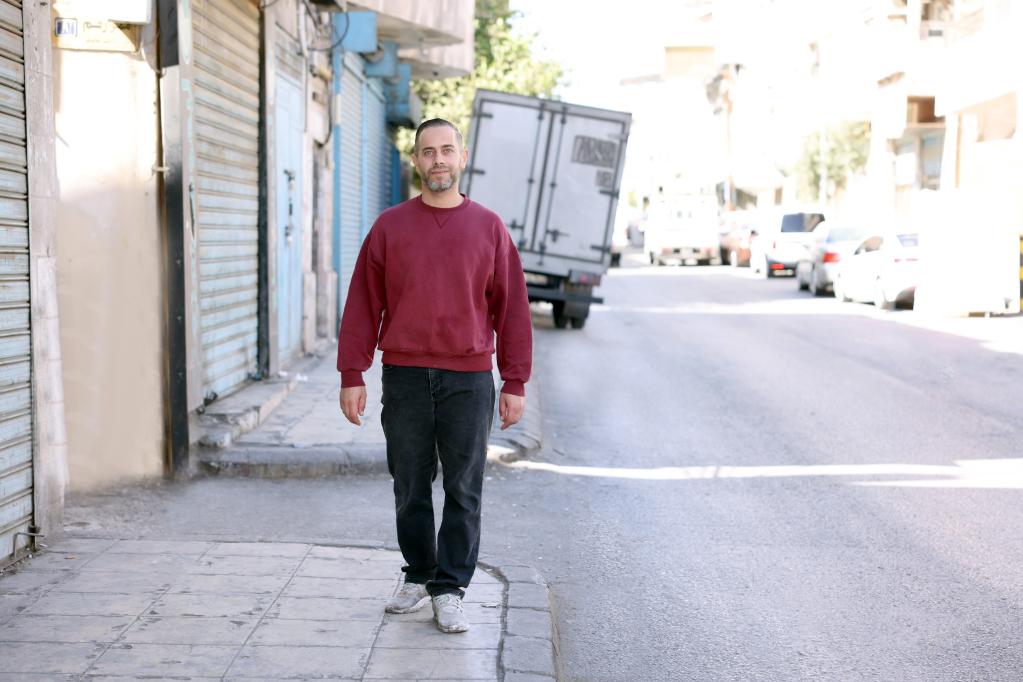
Press Release
28 July 2025
Jordan launches a national strategy for health sector adaptation to climate change
Amman, Jordan – The Ministry of Health officially launched the National Climate Change Health Sector Adaptation Strategy, developed with technical support from the World Health Organization (WHO), during an event held in Amman. The launch took place under the patronage of H.E. the Minister of Health Professor Feras Hawari, and in the presence of H.E. the Minister of Environment Dr Muawieh Radaideh.The Strategy provides a 10-year roadmap to enhance the resilience of the health system in the face of climate-related risks. Aligned with the 2022 National Adaptation Plan, it will contribute to both sustainable development and economic modernization efforts.Developed under the leadership of the Ministry of Health and in collaboration with the Ministry of Environment, the Strategy is the result of an inclusive process involving technical consultations with government entities, civil society organizations and international partners. It is grounded in evidence-based assessments of national vulnerabilities and public health priorities related to climate change. The Strategy positions Jordan as a regional leader in integrating climate considerations into health system planning and resilience-building.The strategy focuses on 7 climate-sensitive health areas: airborne and respiratory diseases; water and food-borne diseases; vector-borne diseases; nutrition; heatwaves; occupational health, and mental health.In addition to addressing these priority areas, the Strategy outlines actions to integrate health and climate into national policies, strengthen early warning systems, enhance preparedness and response capacity and build climate-related institutional and technical capabilities within the health sector.Secretary-General for Primary Health Care and Epidemics Dr Raed Al-Shboul underlined the collaborative nature of the Strategy, its basis in scientific research and focus on long-term system preparedness.WHO Representative in Jordan Dr Iman Shankiti welcomed the launch as a timely step in strengthening the health sector’s ability to adapt to climate change and affirmed WHO’s continued support to the Ministry of Health in implementing the Strategy.The launch aligns with the broader regional initiative, led by WHO Regional Director for the Eastern Mediterranean Dr Hanan Balkhy, to support climate-resilient health systems across the Region and ensure the continuity of essential health services as environmental conditions change.
1 of 5
Press Release
28 July 2025
Childcare access improved for Female workers in a Jordanian industrial zone
AMMAN — The International Labour Organization (ILO) and the Jordan Garments and Textiles Exporters Association (JGATE) marked a significant milestone with the official inauguration of the newly renovated nursery in the Al-Dhulayl Industrial Zone. The ceremony brought together representatives from the ILO, JGATE, the Ministry of Social Development and the Delegation of the European Union (EU) to Jordan, to celebrate the new achievement under an EU-funded, ILO-implemented project which advances working conditions for workers in Jordan’s industrial zones.The nursery has undergone comprehensive upgrades to address structural and safety challenges, ensuring a nurturing environment for children and peace of mind for their parents. The inauguration event highlighted aspects of the initiative through guided tours, heartfelt testimonials from staff and parents and inspiring speeches from distinguished guests.Jordan’s Minister of Social Development Wafa Bani Mustafa noted that, after expansion and rehabilitation, the nursery's capacity had increased from 32 to 184 children from the sons and daughters of men and women workers from several garment factories. She emphasised the importance of nurseries to children in developing their mental, linguistic and social abilities and shaping their personalities. They are a fundamental pillar of early childhood development in a safe educational environment and contributes to children's upbringing alongside the family, forming a link between the family and work.EU Ambassador to Jordan Pierre-Christophe Chatzisavas underscored the broader significance of such initiatives, noting: "Quality childcare is a cornerstone of social justice. Offering quality childcare in this industrial zone is also a way to foster women’s employment and economic participation – a positive development for the individuals and the families concerned, but also for national resilience and social cohesion at large."ILO Country Coordinator in Jordan Amal Mowafy reflected on the project’s role in promoting decent work, saying, "This nursery embodies the ILO’s vision—where no mother must choose between her livelihood and her child’s well-being. It sets a benchmark for the region."CEO of JGATE Rose Alissi highlighted the collaborative effort behind the project. "We believe that this project is a pivotal step toward empowering working women and enhancing the work environment in the garment sector. Under the leadership and vision of the Ministry of Social Development, and with the support of the European Union and the International Labour Organization (ILO), we were able to implement it successfully. We are very proud of the strong collaboration and all the good work that has been achieved on the ground, and we hope to see more projects like this in the future, as this tripartite cooperation stands as a model of coordination and impact—one that advances equity, inclusion, and sustainable progress in our sector,” Rose Alissi, CEO of the Jordan Garments, Accessories & Textiles Exporters Association (JGATE) said.Parents and staff shared moving accounts of the renovation’s impact, describing brighter, safer spaces for children and renewed confidence among working mothers. The nursery now features modern learning tools, improved sanitation and qualified caregivers, ensuring compliance with national standards while supporting the factory’s productivity.The initiative falls under the EU-funded project “Towards an inclusive national social protection system and accelerating decent job opportunities for Syrians and vulnerable Jordanians”, which channels the power of social infrastructure to drive gender equality and economic growth. As the ceremony concluded, attendees celebrated the nursery as a model for scalable change, one that balances the demands of work and family and paves the way for a more equitable future.
1 of 5
Press Release
14 July 2025
The Sustainable Development Goals have improved millions of lives over the past decade, but progress remains insufficient, UN report finds
A decade after the adoption of the 2030 Agenda for Sustainable Development, the United Nations released today the 10th edition of its annual progress report, The Sustainable Development Goals Report 2025. The report provides a stark assessment and a strong call for action. While millions of lives have improved, through gains in health, education, energy, and digital connectivity, the pace of change remains insufficient to meet the Goals by 2030. The latest available data show that only 35 per cent of targets are on track or making moderate progress, while nearly half are moving too slowly and 18 per cent have regressed."We are facing a development emergency,” said UN Secretary-General António Guterres. “But this report is more than a snapshot of today. It's also a compass pointing the way to progress. This report shows that the Sustainable Development Goals are still within reach. But only if we act – with urgency, unity, and unwavering resolve.”Progress amid adversityDespite cascading global challenges, the report documents notable global achievements:New HIV infections have declined by nearly 40 per cent since 2010.Malaria prevention has averted 2.2 billion cases and saved 12.7 million lives since 2000.Social protection now reaches over half the world’s population, up significantly from a decade ago.Since 2015, 110 million more children and youth have entered school.Child marriage is in decline, with more girls staying in school and women gaining ground in parliaments around the world.In 2023, 92 per cent of the world’s population had access to electricity.Internet use has surged from 40 per cent in 2015 to 68 per cent in 2024, unlocking access to education, jobs, and civic participation.Conservation efforts have doubled protection of key ecosystems, contributing to global biodiversity resilience.Hard truths and systemic risksAt the same time, the report calls attention to challenges that continue to hold back sustainable development progress:More than 800 million people still live in extreme poverty.Billions still lack access to safe drinking water, sanitation, and hygiene services.Climate change pushed 2024 to be the hottest year on record, with temperatures 1.55°C above pre-industrial levels.Conflicts caused nearly 50,000 deaths in 2024. By the end of that year, over 120 million people were forcibly displaced.Low- and middle-income countries faced record-high debt servicing costs of $1.4 trillion in 2023. A roadmap for accelerationThe report calls for action across six priority areas where intensified effort can generate transformative impact: food systems, energy access, digital transformation, education, jobs and social protection, and climate and biodiversity action.It also urges governments and partners to implement the Medellín Framework for Action, a roadmap adopted at the 2024 UN World Data Forum, to strengthen data systems essential for responsive policymaking.Success stories show that the Goals are achievableGlobal averages may mask meaningful advances in many countries that have made substantial progress across different Goals. For example, 45 countries have achieved universal electricity access in the past decade and 54 countries had eliminated at least one neglected tropical disease by the end of 2024. These national and local successes, driven by sound policies, strong institutions, and inclusive partnerships, prove that accelerated progress is not only possible, but already happening. The final five years to 2030 present an opportunity to deliver on the promises of the SDGs. The 2030 Agenda is not aspirational; it is non-negotiable.“This is not a moment for despair, but for determined action,” said Li Junhua, UN Under-Secretary-General for Economic and Social Affairs. “We have the knowledge, tools, and partnerships to drive transformation. What we need now is urgent multilateralism—a recommitment to shared responsibility and sustained investment.”Additional key facts and figures:ProgressBetween 2012 and 2024, the prevalence of stunting among children under age 5 decreased from 26.4 per cent to 23.2 per cent.Healthy life expectancy increased by over five years between 2000 and 2019. However, COVID-19 reversed some of these gains, cutting life expectancy by 1.8 years.Global maternal mortality ratio dropped from 228 deaths per 100,000 live births in 2015 to 197 in 2023. Under-5 mortality fell to 37 deaths per 1,000 live births in 2023, a 16 per cent reduction from 44 in 2015.By the end of 2024, 54 countries had eliminated at least one neglected tropical disease.Between 2019 and 2024, 99 positive legal reforms were implemented to remove discriminatory laws and establish gender equality frameworks.As of 1 January 2025, women held 27.2 per cent of the seats in national parliaments, up 4.9 percentage points from 2015.Renewable energy is the fastest-growing energy source today and is projected to surpass coal as the primary electricity source in 2025.5G mobile broadband now covers 51 per cent of the global population.SetbacksWithout a significant acceleration in efforts, 8.9 per cent of the global population will still be living in extreme poverty by 2030 under the revised international poverty line.Nearly 1 in 11 people worldwide faced hunger in 2023.In 2023, 272 million children and youth remained out of school.Women perform 2.5 times as many unpaid domestic and care work as men.In 2024, 2.2 billion people lacked safely managed drinking water, 3.4 billion went without safely managed sanitation, and 1.7 billion lacked basic hygiene services at home.The global refugee population has surged to 37.8 million by mid-2024.Worldwide, 1.12 billion people live in slums or informal settlements without basic services.Official development assistance declined 7.1 per cent in 2024 after five years of growth, with further cuts expected through 2025. For more information, please visit: https://unstats.un.org/sdgs/report/2025
1 of 5
Press Release
13 July 2025
WFP welcomes new contribution from the UK government to support refugees in Jordan
This is the UK’s second contribution to WFP Jordan this year, following a GBP 4 million (US$5.16 million) allocation earlier in 2025, that helped WFP avert assistance cuts for thousands of vulnerable refugees.“This renewed support from the UK comes at a critical moment and reflects the UK's ongoing commitment to humanitarian efforts in Jordan,” said WFP Representative and Country Director in Jordan Alberto Correia Mendes. “The funds will enable WFP to continue supporting the most vulnerable families, especially during this challenging time when WFP and other partners in the refugee response are facing funding shortfalls that limit our collective capacity to assist people in need.”Despite this valuable contribution, WFP still urgently needs US$24 million to continue providing reduced monthly cash assistance through December and avoid further cuts for refugees living in camps and host communities.WFP currently supports 280,000 refugees in Jordan with cash-based assistance to help meet their basic food needs, the majority of whom are Syrians. Due to ongoing funding shortfalls WFP reduced in July 2023 its monthly cash assistance one-third reduction from JOD 23 (US$32) to JOD 15 (US$21) per person.
1 of 5
Press Release
03 July 2025
“Through Their Lens” Exhibition opens: Syrian refugees share their stories in photos
“Through Their Lens”, a photography exhibition, opened yesterday in Amman, offering an authentic glimpse into the lives of Syrian refugees living in Jordan. The exhibition is the result of a joint initiative under the PROSPECTS partnership — a Netherlands Strategic Partnership with the IFC, ILO, UNHCR, UNICEF, and the World Bank — aimed at improving the prospects of refugees and host communities in Jordan.Through a series of photography trainings, Syrian refugees were equipped with basic photography and digital storytelling skills. Using only smartphones, participants captured personal stories highlighting their work, family life, education, and daily routines, with submissions from both adults and children.More than 32 photographs, selected by a jury of humanitarian experts and photographers, are on display at Manara Arts & Culture Center in Al Luweibdeh, to reflect the broad range of experiences shared by participants. “Under the PROSPECTS partnership, we aim not only to provide support in education, employment, protection, and WASH but also to show the value that refugees bring to the communities they live in. This exhibition is a powerful example of how photography and storytelling can give voice to refugee perspectives,” said H.E. Mr. Harry Verweij, Ambassador of the Kingdom of the Netherlands to Jordan.“This exhibition shows us the reality of life in displacement not through reports or statistics, but through the eyes of those living it. By giving refugees the opportunity to capture and share their own stories, we are reminded that every refugee is also a person with dreams and a voice to be heard. This exhibition is also an opportunity to honor Jordan as a generous host that has provided safety and dignity to those who had to flee their own countries. UNHCR thanks the Kingdom of the Netherlands and its Ambassador to Jordan for continued solidarity with refugees and host communities, and for helping them to realize their dreams through supporting access to social protection, employment, and education.” Maria Stavropoulou, UNHCR Representative to Jordan.“Behind every photo in this exhibition is a story of courage, hope, and determination to build a better future. We are proud to be part of the PROSPECTS partnership, which not only invests in services and livelihoods but also in the power of people to tell their own stories.” said Holly Benner, World Bank Resident Representative to Jordan.“IFC is committed to advancing economic inclusion through private sector driven solutions by equipping women, youth, and displaced communities with the tools to succeed. Through targeted entrepreneurship and digital skills training, we help transform potential into investment-ready businesses and meaningful job opportunities. To ensure these efforts are impactful and locally relevant, we work closely with our Prospects partners, aligning economic opportunities with community needs through data-driven market assessments,” said, Marcel Rached, IFC’s Country Head for Jordan. “At UNICEF, we believe that every child should have the opportunity to learn, grow, and be heard. Through Their Lens shows what becomes possible when young people are equipped with the right tools and support. Under the PROSPECTS partnership, and thanks to the generous support of the Government of the Netherlands, UNICEF has reached thousands of children and youth with integrated services that combine education, protection, and skills development. This exhibition is a testament to the impact of partnership — not just in delivering services, but in amplifying voices and building futures,” said Shairose Mawji, Acting Representative, UNICEF Jordan."As the recent monumental changes in Syria hold a glimmer of hope for refugees to return and rebuild their life in their country, this exhibition is a meaningful reflection of the result of giving people both the tools and the opportunity to tell their story." Said Shaza Al Jondi, ILO Prospects- Regional Chief Technical Adviser for Arab States."As part of our commitment to skills building and decent work, the ILO along with its PROSPECTS partners, supported Syrian refugees from across Jordan with training on how to capture photographs using just their phones. As we can see from the event, the outcome has been a very impressive portrayal of life through their eyes. We are very proud of this initiative, which turns skill-building into storytelling and ensures that refugee voices are not only heard, but also seen." The exhibition will be open to the public from Wednesday 2 July through to Sunday 5 July 2025. It is expected to attract visitors to reflect on Syrian refugees’ daily lives and aspirations for their future.PROSPECTS is a global partnership that aims to improve the access of host communities and refuges to quality education, social protection, water and decent work. It Is funded by the Kingdom of the Netherlands and implemented by IFC, ILO, UNHCR, UNICEF and the World Bank.
1 of 5
Latest Resources
1 / 11
Resources
05 December 2024
Resources
16 January 2024
1 / 11
















